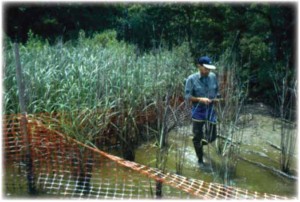 The U.S. Army Corps of Engineers (the Corps) is the primary federal agency charged with administering the CWA and is closest to the ground in terms of day to day decisions and the actual mechanics of how wetlands policy develops and is administered.
The U.S. Army Corps of Engineers (the Corps) is the primary federal agency charged with administering the CWA and is closest to the ground in terms of day to day decisions and the actual mechanics of how wetlands policy develops and is administered.
The Environmental Protection Agency (EPA) has CWA oversight responsibilities and is required to develop guidance on policy and technical issues. The EPA is authorized to challenge decisions by the Corps and may “elevate” the challenged permits for resolution by the EPA. Because the EPA is the oversight agency, it may be more institutionally adept at moving wetland protection policy towards protecting inland areas to enable the migration of wetlands as sea level rises.
Through numerous permitting processes, additional U.S. federal agencies play advisory roles in wetlands management.
- The U.S. Fish and Wildlife Service (USFWS) reviews Section 404 wetland permits for their impacts on fish and wildlife resources.
- NOAA Fisheries, also known as the National Marine Fisheries Service (NMFS), reviews permits for impacts on marine resources, including essential fish habitat.
- The Natural Resources Conservation Service (NRCS) is the lead federal advisory agency for wetlands in agricultural contexts.



